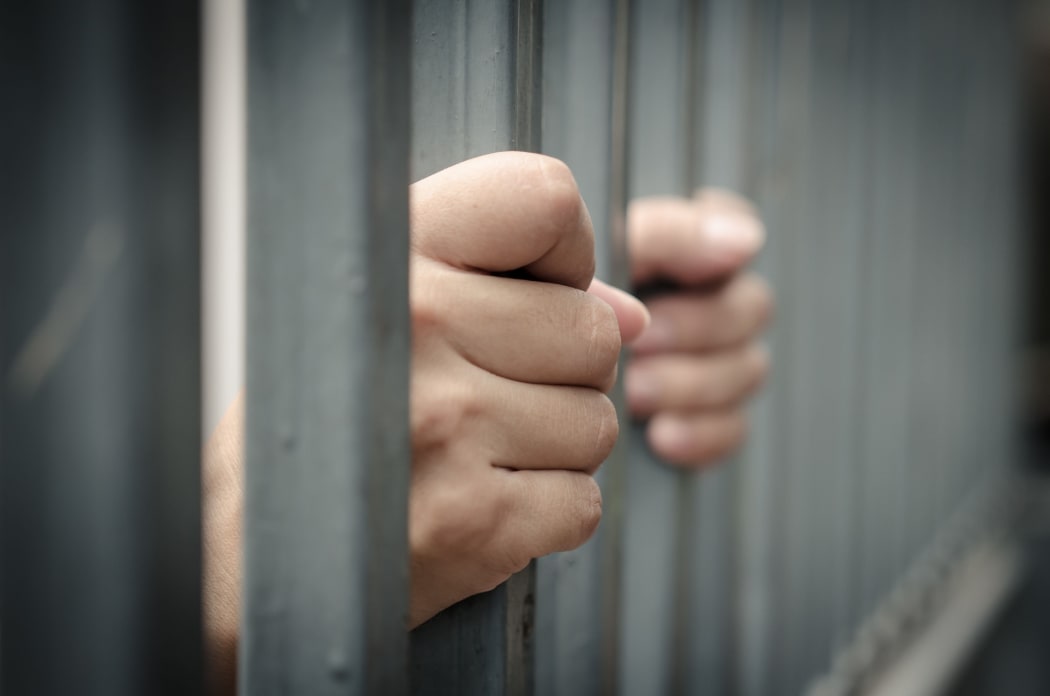Corrections chief executive Ray Smith says restraining a prisoner for up to 16 hours at a time was a "very extreme" measures to save his life and keep staff and other prisoners safe.

There are calls for a formal inquiry into the way Corrections handled mentally ill prisoners. Photo: 123RF
It detailed five cases where restraints were used for long periods.
That included an Auckland Prison inmate who was secured to a tie-down bed for a total 600 hours. Another in Otago was kept in a waist constraint with his hands cuffed behind his back for several hours a day over 12 weeks.
The report said the Corrections Department broke the law and breached the international Convention against Torture.
Corrections chief executive Ray Smith told Morning Report mistakes were made, but the actions of staff saved the man's life.
"It's a response to an imperfect situation with a very extreme person.
"If you have someone that's prepared to pull their wounds open, insert faeces in their wound, insert sharp objects in their rectum, you are not left with a lot of choices if you are trying to keep them alive."
He said he wished it had been escalated up management earlier and mistakes were made but Corrections staff were trying to get it right.
Professionals at Auckland forensic psychiatric unit the Mason Clinic were involved in planning for the man's care and Mr Smith did not believe anyone broke the law.
"The difficulty is they [Corrections staff] are dealing with a person ... that assaults them, that bangs their head against walls.
"What are they left to do?
He said the prisoner was highly manipulative and it was lawful to use a tie-down beds restraints in difficult circumstances.
The prison officers union said staff were under-resourced to deal with at-risk prisoners and were often left with no choice but to restrain them.
Corrections Association president Alan Whitley said some prisoners needed better mental health care than prisons could provide, and they should be in a secure mental health facility.
He said when a prisoner was in a state where they were ripping their own stomach out, all staff could do to stop them was use the restraints.
Call to prosecute prison guards over tied-down inmates
A prison counsellor wants the guards who restrained mentally ill prisoners for days at a time to be charged with torture.
The clinical manager of a group providing alcohol and drug counselling in prisons, Roger Brooking, said Corrections' managers and staff needed to be held to account.
"If prison officers are, in effect, torturing prisoners, then they should be arrested and charged and appear in court for torture. That's what the Ombudsman says that these guys are doing, so let's see some of them in court."
Yesterday, Corrections' chief executive Ray Smith said a staff member had been fired for assaulting an at-risk inmate while he was tied to a bed.
Mr Brooking said that was not enough.
"Let's see that prison officer get charged with torture, then maybe somebody would actually sit up and take some notice.
"Good on Peter Boshier for being so critical and explaining it like it actually is - but whether it will lead to any action beyond that is another matter," he said.
Mr Brooking wanted a formal inquiry into the way Corrections handled mentally ill prisoners.
"Unless there's a major inquiry, and there's a serious investigation of how this can be done better, then nothing is going to change because more and more people are ending up in prison and the problem is just going to get worse."
Mental Health Foundation chief executive Shaun Robinson agreed something needed to change.
"Sixty-two percent of prisoners have a diagnosed mental illness.
"If you include substance abuse ... then that rises to 90 percent. So this is a population of people who have a much higher likelihood of being mentally unwell and Corrections clearly has done very little to address this."
He questioned why Corrections did not give the prisoners with psychiatric support sooner.
"We have mental health services that have the expertise to deal with people when they are going through these kinds of crises.
"Why was Corrections not creating the relationships, and the referral processes, so that when someone is that unwell, they are in a hospital - not in a prison?."
Lawyer Kelly Ellis, who has previously spoken out about the mistreatment of prisoners, was appalled by the report's findings.
"It is cruel, it is inhumane, it is torture. We would not expect animals in animal shelters to be treated like that .
"If they were, we'd shut the damn place down. Maybe that's what we need to do with some of our prisons."




